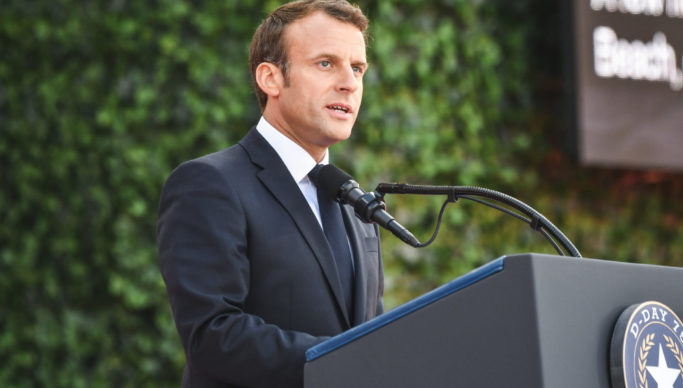
French Public Schools to Implement Dress Code Prohibiting Muslim Robes
- By Geoffrey Peters --
- 04 Sep 2023 --
In the latest in a series of contentious clothing restrictions associated with Muslims in France, President Emmanuel Macron has stated that French authorities will be “uncompromising” in enforcing a new dress code banning students from wearing long robes in public schools.
Macron’s statement follows an announcement by French Education Minister Gabriel Attal in a news conference on August 28. Aimed at enforcing secularism in public schools, the ban is scheduled to take effect with the beginning of the new school year September 4.
The robes, known as abayas for girls and women, and khamis for boys and men, are predominantly worn by Muslims.
Speaking with journalists after visiting a professional school in southern France last week, Macron acknowledged there will be instances of students testing the new rule, some attempting to “defy the republican system.” He made it clear that these students would not be allowed to attend classes, emphasizing authorities would be strict in their enforcement.
“Schools in our country are secular, free, and compulsory,” the president said. “But they are secular…. this is the very condition that makes citizenship possible and therefore religious symbols of any kind have no place in them. And we will vigorously defend this secularism.”
The education minister characterized the wearing of robes by girls and boys as a violation of secularism, a fundamental principle in France. He suggested that some students use these traditional garments as a means to disrupt schools.
Attal also stated that 14,000 educational leaders would receive training by the end of the year to address enforcement and other issues related to upholding secularism, with 300,000 personnel set to be trained by 2025.
The new law, which does not apply to university students, is highly controversial, as critics on social media argue that loose, body-covering garments do not constitute a conspicuous display of religion and therefore should not be banned in classrooms.
Several opposition lawmakers have been critical of the restriction. One of them, Danièle Obono, referred to it as a “new Islamophobic campaign.”
The basis for the ban on long robes is a 2004 law aimed at preserving laïcité, roughly translated as secularism, in French public schools. The law, passed after extensive debate and tension, with Muslims asserting that it singled them out, not only prohibited Muslim headscarves but also extended to include large Christian crosses, Jewish kippas, and the turbans worn by Sikhs.
In recent years, France has implemented a number of contentious bans and limitations on various articles of clothing associated with Islamic customs. The actions have often elicited strong reactions from Muslim nations and international organizations.
In 2022, legislators supported an amendment that called for prohibiting the hijab and other “conspicuous religious symbols” during sporting events. The proposal was put forth by Les Républicains, a conservative party, which argued that the hijab could pose safety concerns for athletes participating in sports.
In 2018, the United Nations Human Rights Committee determined that a 2010 French prohibition on the niqab—full-face veils worn by certain Muslim women—constituted a violation of the human rights of those who chose to wear it.


















